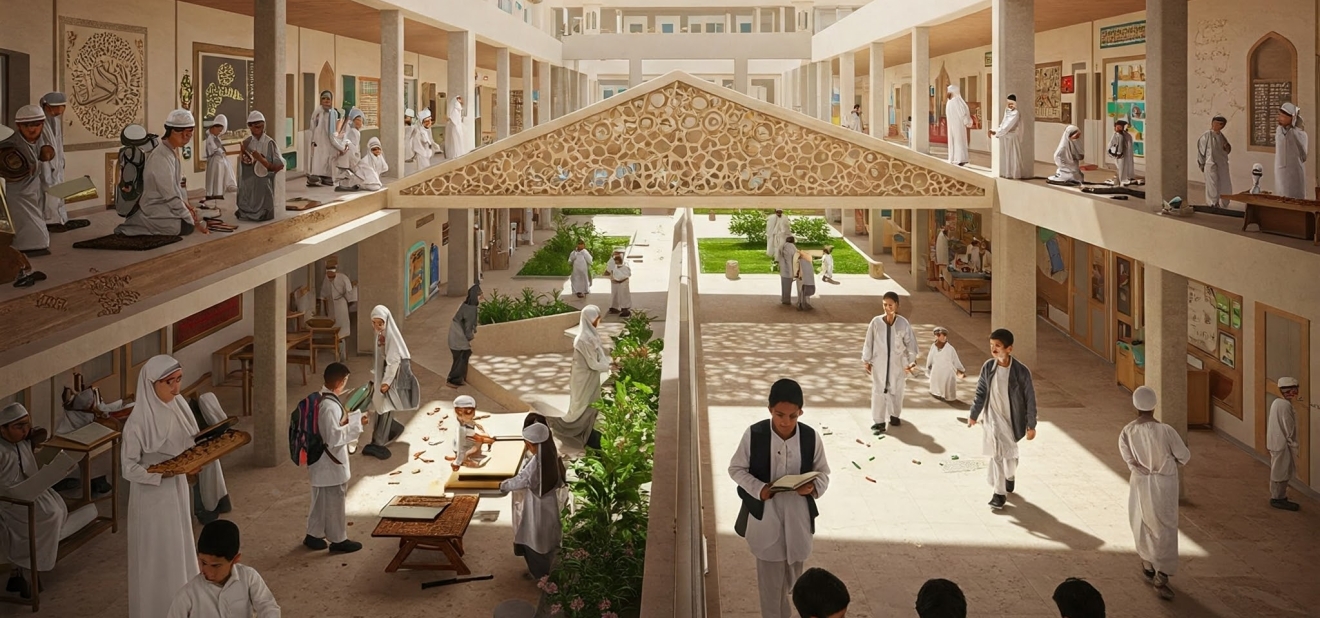The modern educational landscape presents a complex tapestry of challenges and opportunities. As Muslim communities navigate this terrain, the question of how to integrate Islamic values into contemporary education becomes paramount. It's not merely about adding religious studies to the curriculum, but about fostering an environment where ethical principles, spiritual awareness, and intellectual inquiry coexist harmoniously. This article explores the multifaceted process of building bridges between Islamic values and modern education, examining its significance and practical applications.
1. Foundational Principles: Tawhid and Holistic Development
At the heart of Islamic education lies the concept of Tawhid (the oneness of God). This principle extends beyond theological belief, permeating all aspects of life, including education. It emphasizes the interconnectedness of knowledge, morality, and spirituality. Modern education, often compartmentalized into secular disciplines, can benefit immensely from this holistic approach. Integrating Tawhid means recognizing that scientific discoveries, historical analyses, and artistic expressions are all reflections of God's creation. It encourages students to seek knowledge not merely for academic achievement, but as a means of understanding their place in the universe and fulfilling their purpose as God's vicegerents on Earth. This integration fosters a sense of purpose and ethical responsibility, shaping students into individuals who strive for intellectual excellence while remaining grounded in their faith.
2. Ethical Frameworks: Adab and Akhlaq in the Classroom
Adab (etiquette) and Akhlaq (moral character) are central to Islamic teachings. In a modern educational setting, these values translate into fostering a respectful and inclusive learning environment. Teachers are not merely instructors but role models, embodying integrity, fairness, and compassion. Students are encouraged to engage in respectful dialogue, practice empathy, and uphold ethical standards in their academic pursuits. Integrating Adab and Akhlaq goes beyond classroom conduct; it extends to academic honesty, collaborative learning, and responsible use of technology. By emphasizing these ethical frameworks, schools can cultivate a culture of integrity and mutual respect, preparing students to be responsible and ethical citizens.
3. Knowledge and Inquiry: Balancing Revelation and Reason
Islam places great emphasis on seeking knowledge, both revealed and acquired through reason. The challenge lies in harmonizing these two sources of knowledge within a modern educational context. Integrating Islamic values means encouraging critical thinking and intellectual curiosity while grounding students in the principles of the Quran and Sunnah. It’s about teaching students to analyze information, question assumptions, and engage in informed discourse, all within the framework of their faith. This approach prevents a false dichotomy between religious and secular knowledge, fostering a balanced perspective where faith and reason complement each other. By encouraging students to explore the natural world, analyze historical events, and engage with diverse perspectives through an Islamic lens, education becomes a journey of discovery and spiritual growth.
4. Social Responsibility: Serving the Community and Beyond
Islam emphasizes the importance of social responsibility and community service. Modern education can incorporate these values by fostering a sense of civic engagement and global awareness. Students can be encouraged to participate in community projects, volunteer their time, and learn about social justice issues from an Islamic perspective. The concept of Ummah (global Muslim community) expands this sense of responsibility beyond local boundaries, encouraging students to be aware of and responsive to the needs of Muslims worldwide. By integrating social responsibility into the curriculum, schools can cultivate a generation of compassionate and engaged individuals who are committed to making a positive impact on their communities and the world.
5. Cultivating Spiritual Awareness: Integrating Dhikr and Reflection
Beyond intellectual development, Islamic education emphasizes the importance of spiritual growth. Modern schools can integrate practices like Dhikr (remembrance of God) and reflection to cultivate spiritual awareness among students. This can be achieved through dedicated spaces for prayer and meditation, incorporating mindfulness exercises into daily routines, and encouraging students to reflect on the deeper meanings of their learning. By fostering a connection with the divine, schools can help students develop a sense of inner peace, purpose, and gratitude. This spiritual grounding can provide students with a strong foundation to navigate the challenges of modern life and maintain their faith in a secular world.
Summary
Building bridges between Islamic values and modern education is an ongoing and evolving process. It requires a holistic approach that integrates Tawhid, Adab, Akhlaq, balanced knowledge acquisition, social responsibility, and spiritual awareness. By fostering an educational environment where faith and reason coexist harmoniously, schools can empower Muslim students to become intellectually curious, ethically grounded, and spiritually aware individuals. 1 This integration not only enriches the lives of Muslim students but also contributes to a more just and compassionate society, reflecting the universal values of Islam. It is through these bridges that we can shape a future where education serves as a beacon of both intellectual and spiritual enlightenment, guided by the timeless principles of Islam.

